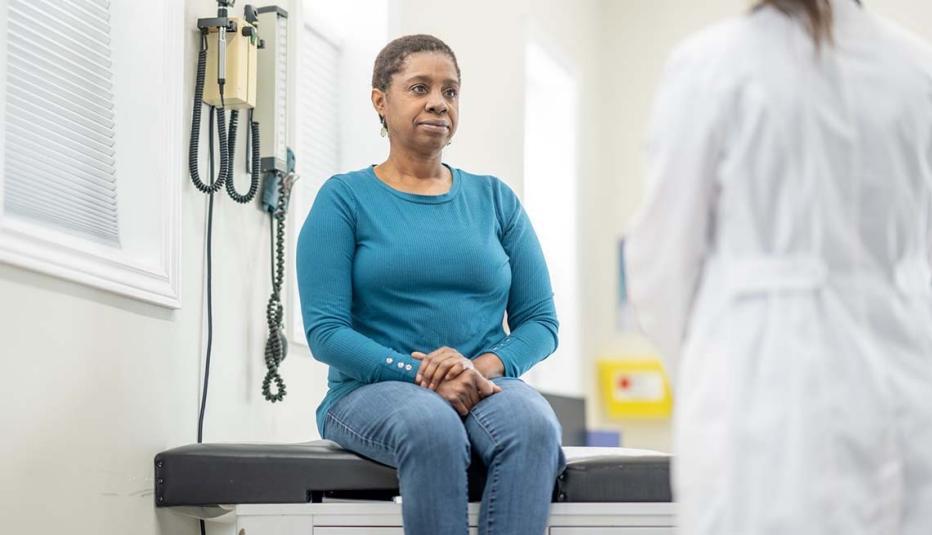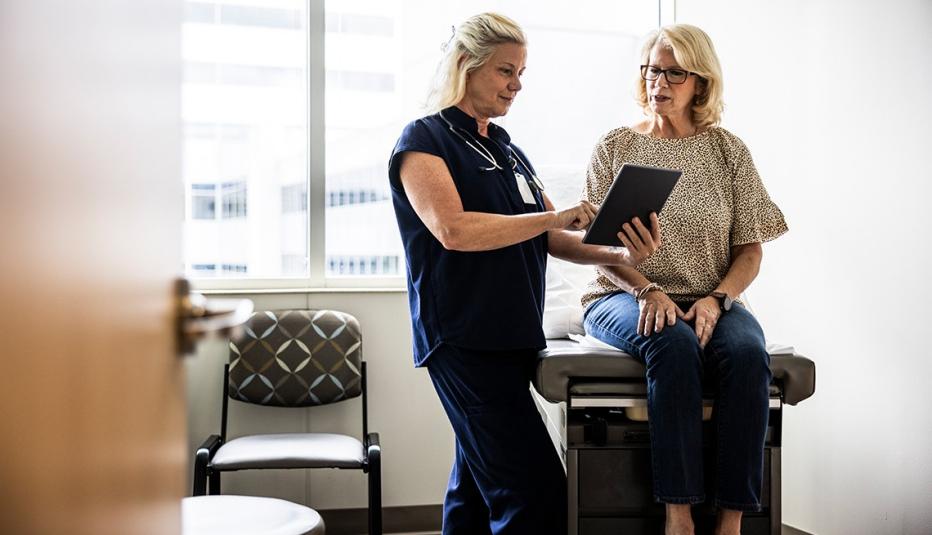AARP Hearing Center
A new AARP survey looked at the experiences U.S. adults age 18 and older have with the health care system and found that, for most, the experience is a positive one. Regular medical appointments are common, with roughly three-quarters having seen a medical professional during the past year. Checking their patient portal is also common as is asking for more information about diagnoses. Only one-quarter believe that their medical concerns were not taken seriously by a medical professional, but those who think so report feeling frustration, anger and distrust because of their experience.


Regular medical appointments are common among U.S. adults age 18 and older.
- Most (61%) adults 18 and older report having seen a medical professional in the past six months with another 1 in 6 (16%) seeing one in the past year.
- Adults 60 and older are the most likely to report having seen their regular doctor or having received care in a hospital or emergency department within the past six months.
Among the top medical-related activities U.S adults undertake are checking their patient portal and asking for more information about a diagnosis or treatment plan.
- Checking their patient portal is the most common medical-related activity adults 18 and older report, with nearly 6 in 10 (57%) saying they have ever done so.
- Asking their doctor for more details about a diagnosis or treatment plan is the second most common activity, noted by more than 4 in 10 (45%) adults 18 and older.
Although believing that one’s medical concerns have been minimized, ignored or dismissed is generally uncommon among U.S. adults, those who have experienced it say they felt frustration, anger and distrust.
- One-quarter (26%) say their (or a family member’s) concerns were not taken seriously.
- Nearly three-quarters (73%) of adults 18 and older who thought their medical concerns were not taken seriously said they felt frustrated by the mistreatment.
- One-quarter (25%) of those who thought their medical concerns were not taken seriously said they spoke up and raised the issue with the doctor or another member of the medical team.
- Roughly one-quarter (23%) reported they did not do anything although they remained concerned about not having their concerns taken seriously.
- Half of those who felt their concerns were not taken seriously thought it was due to a personal characteristic of their own, with most noting their age (42%).
While adults age 18 and older generally report positive experiences with their health care system, one-quarter say they do not have optimal experiences. Many believe their (or a family member’s) medical concerns have been minimized, ignored, or dismissed when receiving care. The findings from this recent AARP research support the need to implement comprehensive measures to address these issues and improve care, including redesigning national and organizational surveys (e.g., patient satisfaction surveys) to better understand the frequency, the downstream harms (including financial), the underlying factors and the impact on adult patients.
Methodology
These findings are based on a survey conducted May 15–19, 2025, among U.S. adults 18 and older to look at their experiences with the health care system. The sample of 1,122 Americans 18 and older was pulled from the NORC AmeriSpeak panel with data weighted to the latest Current Population Survey (CPS) benchmarks developed by the U.S. Census Bureau. They are balanced by sex, age, education, race/ethnicity and region such that the final weighted data reflect the U.S. population of adults age 18 and over.
For more information, please contact Cheryl Lampkin at clampkin@aarp.org. For media inquiries, contact External Relations at media@aarp.org.





































































